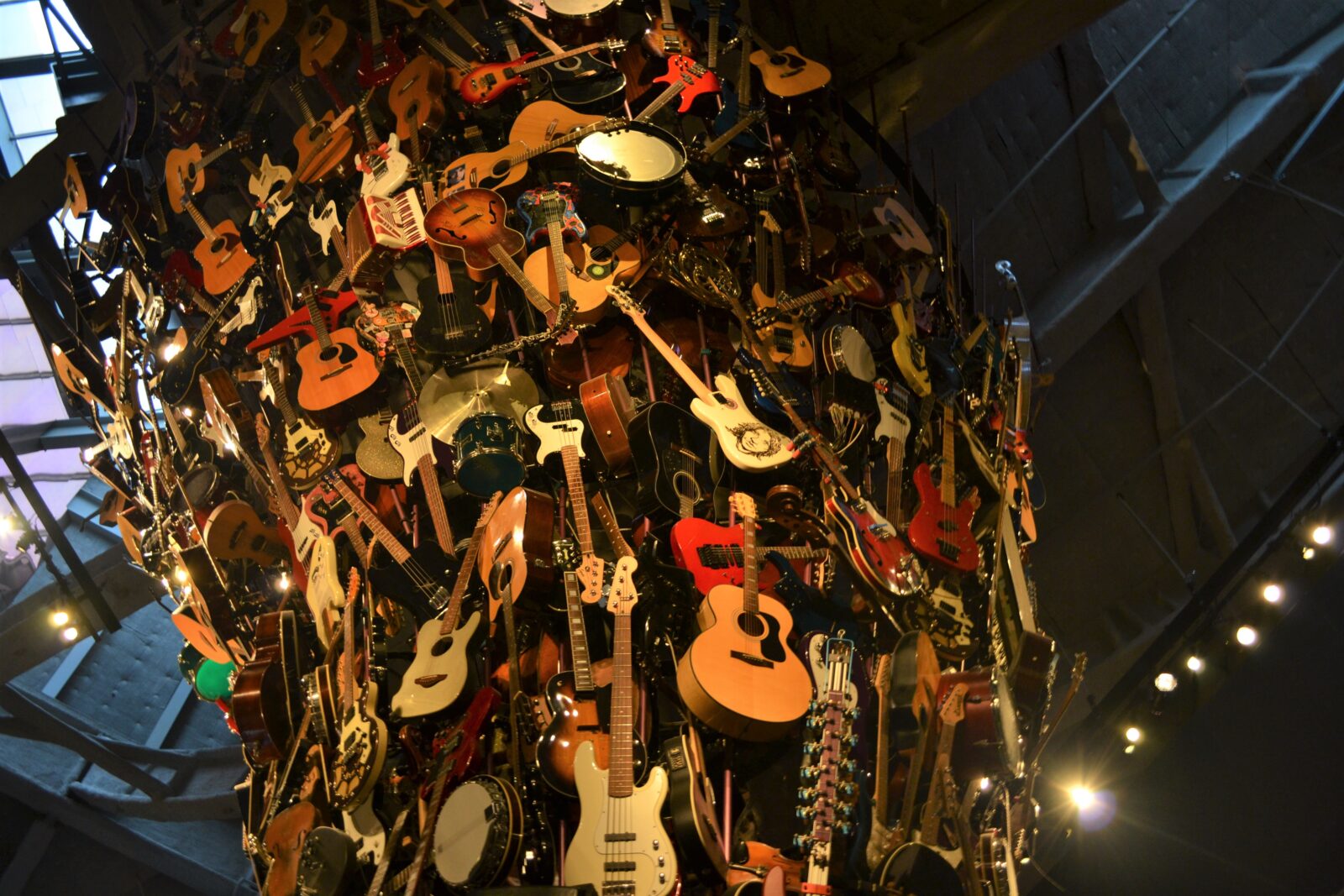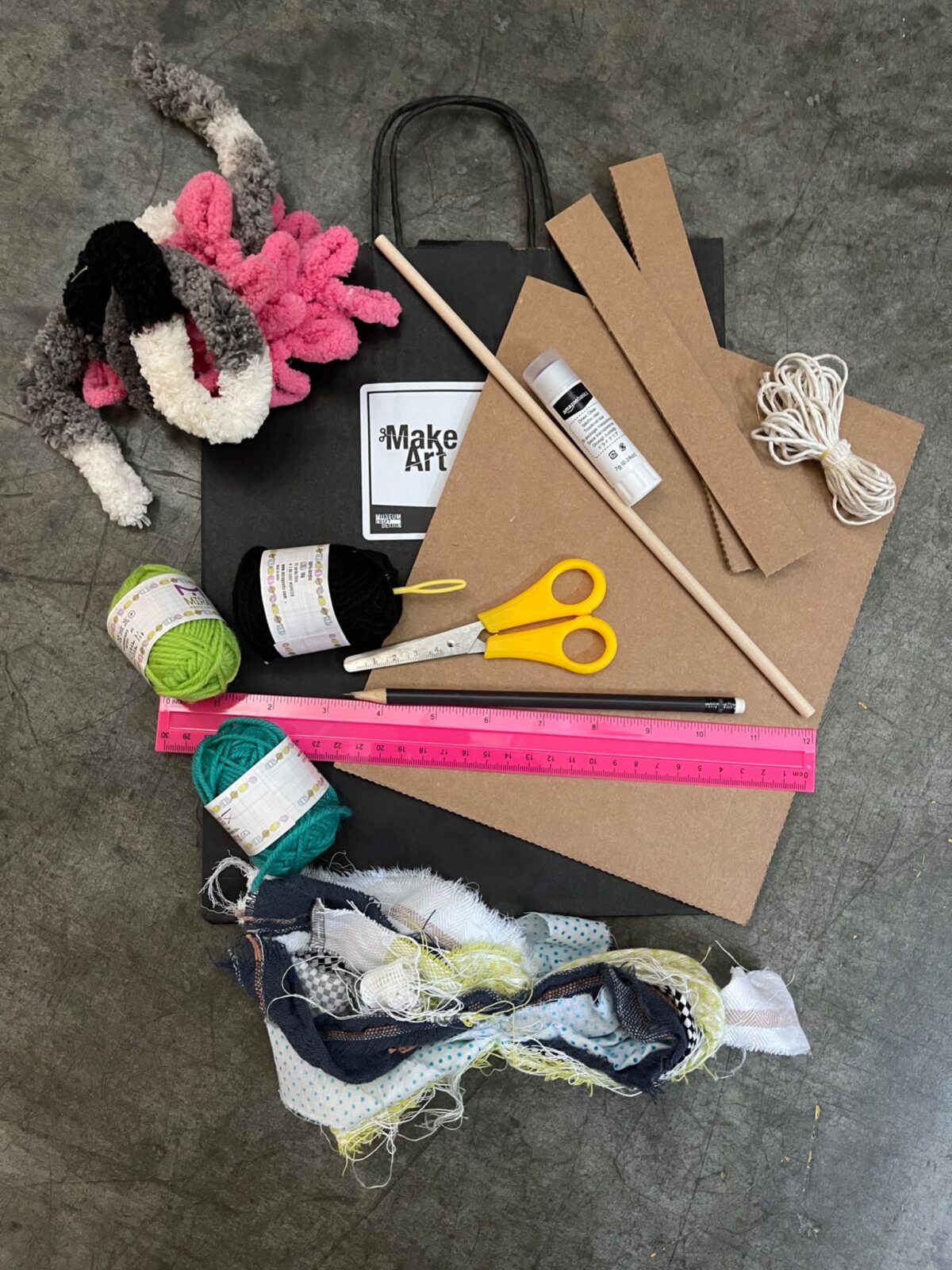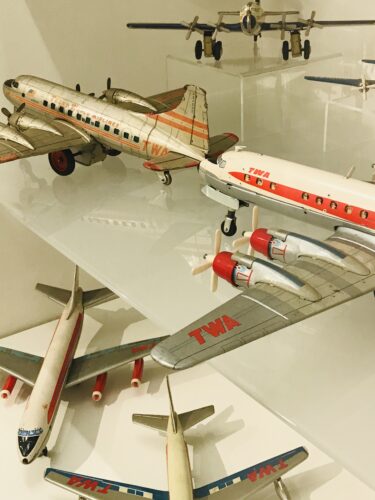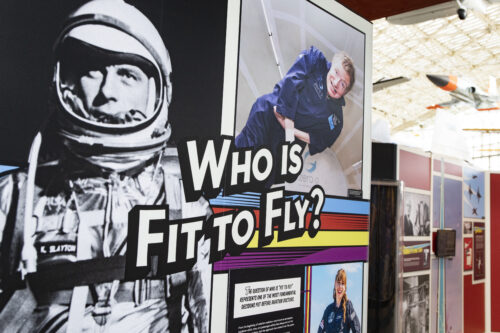
[This is a story we wrote for NBC News]
As inflation leads households to tighten their entertainment and travel budgets, many are forgoing trips to museums and cultural institutions, where tickets can often top $25 per person.
This coming Saturday, Sept. 17, might bring some temporary relief.
For the 18th annual Museum Day, a nationwide program spearheaded by Smithsonian magazine, nearly 1,000 museums, science centers, zoos, cultural attractions and historic sites will waive admission fees; visitors just have to download a free ticket.
The event comes at a precarious time for an industry that is trying to regain its financial footing from the pandemic’s disruptions. Attendance was down by nearly 40% last year at many of the nation’s museums, according to the American Alliance of Museums, and curators are trying to entice visitors who may opt to spend their limited leisure dollars elsewhere.
Like many other museums around the country, Seattle’s Museum of Pop Culture hasn’t seen attendance recover to pre-Covid levels. The museum, where current exhibitions run from Afrofuturist costume design to hometown rock band Pearl Jam, offers entry starting around $25 but will waive admission fees on Saturday for Museum Day ticket holders.
“After a strong spring where we exceeded attendance expectations, the summer has slowed down a bit,” said MoPOP spokesman Michael Cole-Schwartz. “We largely attribute that to high gas prices dissuading regional visitors we might have otherwise expected.”
Drew Ramsey, a security engineer from Phoenix, seeks museum discounts “sometimes obsessively” while traveling with his family. “I will comb a place’s website, search social media and message boards, and check deal sites like Groupon to ensure I’m getting the best admission prices available,” he said.
He’s discovered that some marquee venues rarely offer discounts, but that hasn’t always deterred him: “Why make the effort and pay to visit somewhere and then skip the prime attractions?”
If Covid restrictions and mandated closures weighed on Museum Day last year, this year’s event coincides with inflation that is just starting to cool off from 40-year highs — which could raise the appeal of waived entry fees. Admission prices for museums, movies, concerts, theme parks and other cultural activities were 6.2% higher last month than they were in August last year, federal data show.
Museum Day offers entry fee relief

To offer a break from those cost pressures, sites participating in Museum Day are rolling out bonus programming, new exhibitions and other ways to both lure in visitors and delight them enough to return after the admission holiday ends.
Honolulu’s Pearl Harbor Aviation Museum (adult admission: $25.99) will offer family-friendly activities including open cockpits, scavenger hunts and a Rosie the Riveter costume contest. The American Kennel Club Museum of the Dog in New York City (adult admission: $15) debuts its 40th-anniversary exhibition on Wednesday, just in time for Museum Day. And at San Francisco’s Museum of Craft and Design (adult admission: $10), visitors will be able to join craft activities or leave with a free kit of art supplies.
This is the fifth year MCD is participating in Museum Day. It expects hundreds of visitors with free passes to show up and “try something new or take a chance on something they might not have otherwise,” said museum spokeswoman Sarah Beth Rosales.
Museums earn around 40% of their revenue from admissions, facility rentals and gift shop sales, according to the American Alliance of Museums. “They are certainly grappling with the impacts of rising inflation and the massive financial impact the pandemic had on their operations over the last few years,” said AAM president and CEO Laura Lott.
Sixty-one percent of museums AAM surveyed last winter reported an average 38% decrease in net operating performance, and 27% said their performance sank even further in 2021, by an average of 33%. Lott said she expects ongoing financial difficulties to persist into next year.
How are museums coping?
Many museums have shaved staff and programming. Nearly three-quarters of museums in AAM’s survey said they’d managed to retain or restore all their workers, with often vital support from government relief funds.
But more than half the museums with job openings reported difficulty filling roles. Employment in the nation’s museum sector stood at around 92,400 in July, according to preliminary data from the Bureau of Labor Statistics, up from 79,000 a year earlier but well below the 103,600 in July 2019.
Some museums have raised admission fees to help shore up their finances. In July, New York City’s Metropolitan Museum of Art hiked general admission to $30, a $5 increase, for visitors who aren’t state residents or regional students, groups that can still pay what they wish.
A study last year by a discount-tracking website, deal A, found more than a dozen major U.S. museums have raised ticket prices by between 20% and more than 60% in the past few years.
Many other museums have kept prices steady while testing out fresh ways to serve the public. Confronted with Covid-19, institutions across the country launched initiatives — many of them free — to meet community needs, and AAM found that many of those have continued, including online learning programs, food banks and wellness offerings.
During the pandemic, the Mütter Museum at the College of Physicians of Philadelphia opened the previously off-limits second floor of its landmarked building, including the historical medical library, to daily visitors and hosted public and private events in its medicinal plant garden.
In Hutchinson, Kansas, the Cosmosphere, which boasts the world’s largest combined collection of U.S. and Soviet-era space artifacts, remodeled four gallery areas during the pandemic and added a new interactive STEM space that’s free with admission.
The museum hasn’t raised ticket prices and attendance has bounced back quickly, spokeswoman Mimi Meredith said, thanks in part to the “Sunflower Summer” program that began last year and allowed Kansans to visit museums, zoos, historic landmarks and other venues for free this summer as well.
The Cosmosphere has also broadened its regular offerings to include programs tied to special days, such as mathematics celebrations to mark Pi Day on March 14. A few weeks ago, the site set up chairs and big-screen TVs in its lobby for free viewings of the Artemis 1 launch, although NASA wound up postponing two attempts over mechanical issues.
“As families make choices about how to spend dollars that have been stretched farther and farther over the years, we’re trying to be more of a resource for families to experience things together,” Meredith said.
More ways to get free or discounted museum admissions
If you miss Museum Day this weekend, don’t worry. Many museums have regular days or hours when admission is free, discounted or “pay what you wish.” And a membership card from a museum in the North American Reciprocal Museum Association will get you free admission to more than 1,000 member museums in the U.S., Canada, Bermuda, El Salvador and Mexico.
In some American cities, a group of museums may offer free admission on the first Thursday or Friday of a given month or, like Seattle and San Diego, offer two-for-one deals during the winter when few tourists are in town. Some sites, like Chicago’s Field Museum, offer state residents free entry on select days. And in Washington, D.C., admission is always free at Smithsonian Institution venues, including the National Air and Space Museum, the National Museum of African American History and Culture and the National Zoo.
The Blue Star Museums program provides free admission to active, retired and veteran military personnel and their families during the summer. The Museums for All program offers free or reduced admission year-round to visitors with public assistance (EBT) ID cards. And many public libraries have museum passes that can be checked out free to anyone with a current library card.
“We hope that free admission days will entice community members, new residents and travelers to visit museums they never have experienced before and expand their appreciation for the incredible gems that may have always been in their backyards,” said AAM’s Laura Lott — and, of course, maybe come back again as paying guests





